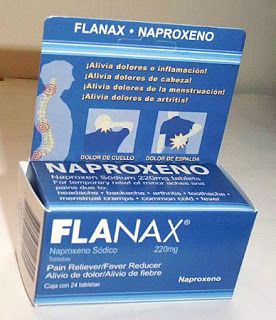After fourteen (14) years of litigation at the TTAB and in the
courts, the battle between Bayer and Belmora over the mark
FLANAX continues. The United States Court of
Appeals for the Fourth Circuit has knocked the ball back into the
district court. The appellate court affirmed the E.D. Va.'s
entry of summary judgment denying Belmora's counterclaims and
it upheld the district court's affirmance of the TTAB's
decision cancelling Belmora's FLANAX registration under Section
14(3) of the Lanham Act. [The district court decision is
TTABlogged here]. However, the Fourth Circuit rejected
the district court's conclusion that Bayer's unfair
competition claims were barred by the applicable statute of
limitations, ruling that laches rather than a state statute of
limitations should be applied to the issue of timeliness. Belmora LLC v. Bayer Consumer Care AG,
Case Number 18-2232 (4th Cir. Feb. 2, 2021).

So what's left of the case? Bayer's unfair competition claims under federal and California state law. The district court had concluded that Bayer's Section 43(a) claims for unfair competition and false advertising, and its similar claims under California law, were barred by the applicable statute of limitations. The court found that the limitations period began to run in September 2004 and it that, whether it applied a three-year or four-year statute of limitations in accordance with California law (there was some split in the Ninth Circuit courts), "Bayer's filing of this action [in June 2014] misses the statute of limitations by almost a decade. There are at least six different dates [in 2004, 2005, 2006, and 2009] that establish that Bayer either knew or should have known of its Lanham Act rights."
The Fourth Circuit, however, ruled that the district court erred in apply a state statute of limitations to Bayer's federal claims. Although the Fourth Circuit "typically" holds that "Congress intended that the courts apply the most closely analogous statute of limitations under state law," it observed that such statutes "can be unsatisfactory vehicles for the enforcement of federal law." Noting that Section 43(a) claims for damages are "subject to the principles of equity," it concluded that laches is the appropriate defense.
We conclude that § 43(a) is one such federal law for which a state statute of limitations would be an unsatisfactory vehicle for enforcement. Rather, the affirmative defense of laches, which applies to claims that are equitable in nature, see White v. Daniel, 909 F.2d 99, 102 (4th Cir. 1990), "provides a closer analogy than available state statutes," DelCostello, 462 U.S. at 172.
And so the Fourth Circuit remanded the Bayer's federal claims to the district court for consideration of the laches defense. It noted that the statute of limitations will still play "an important role" in the analysis. Laches is presumed to bar Section 43(a)claims filed beyond the analogous limitations period.
Should the district court conclude that the presumption applies to Bayer's § 43(a) claims, the district court should consider the following factors to determine if Bayer can overcome the presumption: (1) whether Bayer knew of Belmora's adverse use of the FLANAX mark, (2) whether Bayer's delay in challenging that use "was inexcusable or unreasonable," and (3) whether Belmora "has been unduly prejudiced" by Bayer's delay. See Ray Commc'ns, Inc., 673 F.3d at 300.
As to Bayer's state law unfair competition and false advertising claims, the district court never decided whether the statute of limitations was tolled when the cancellation proceeding was filed in June 2004. The Fourth Circuit therefore also vacated the portion of the district court's order granting summary judgment on those claims, and directed the court on remand "to determine in the first instance whether those claims are subject to tolling and to make any further factual finding necessary to support that determination."
Read comments and post your comment here.
Originally Published by Wolf Greenfield, February 2021
The content of this article is intended to provide a general guide to the subject matter. Specialist advice should be sought about your specific circumstances.
